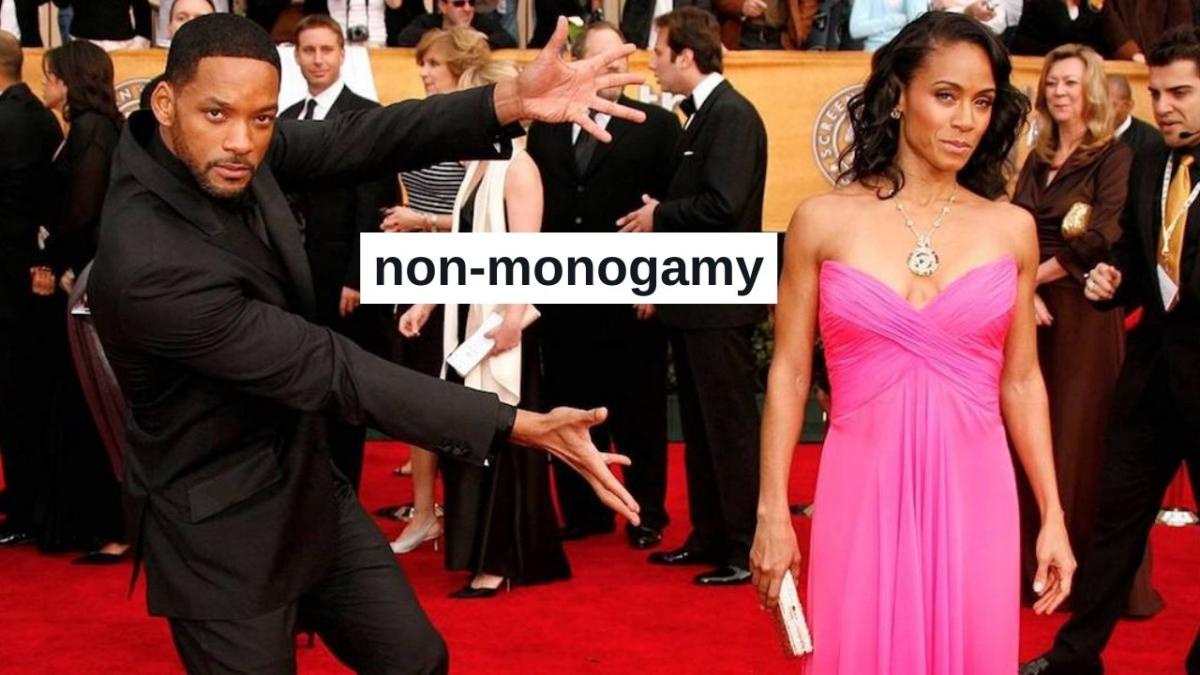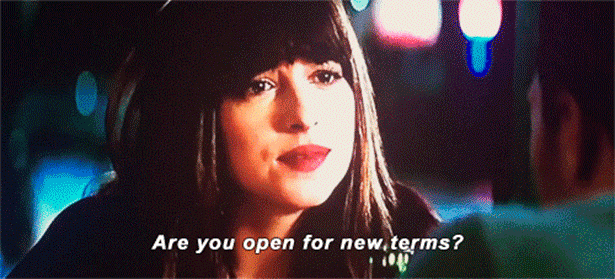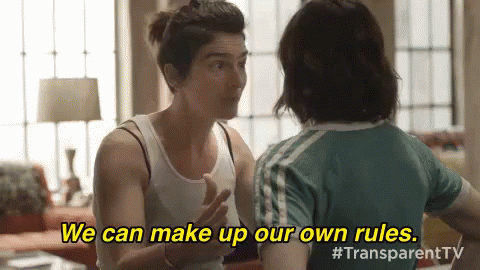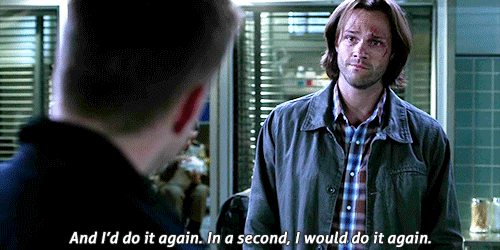
Everything about the way we’re dating and forming relationships is constantly changing. Dating apps. Hookups. Never getting married. All once either unimaginable or deemed irresponsible. As our values and culture change, so too do the ways we define the “right” relationship for us. One thing that’s getting a lot of airtime these days are polyamorous (poly) and open relationships — non-monogamous agreements between partners. Monogamy just isn’t for everyone, you see.
Some will tell you they’re the same thing, but they absolutely aren’t. For the most part, people define “open” relationships as ones in which the partners are free to sleep with other people casually, while poly is having multiple relationships. Hierarchal poly relationships involve one “core” relationship, with one or both partners free to also see someone else in a relationship sense, but the main relationship is the priority. And then there are non-hierarchal poly relationships, where all relationships are of equal importance.
Confusing? It can be. Language around poly and open relationships is quite fluid, with terms in non-monogamous partnerships often interchanging.
I won’t deep-dive into the nuances of non-monogamous relationships, given it’s a huge undertaking worthy of its own article. What I – and I am sure many of you – are most interested in, is how does this all work out IRL?
I spoke with four people who have given some form of an open/poly relationship a try – some with great success, others not so much. What do people who have tried it wish they’d done (or avoided)? Can a relationship without monogamy work without completely imploding and resulting in over 20 Instagram stories of you explaining yourself to friends and family? Let’s find out.
SETTING RULES

Most people I spoke to stressed the importance of ground rules – agreed-upon ones. Sitting down with your partner and figuring out what the absolute “nos” are when it comes to dating other people, and how you can avoid making the other person feel like shit.
Alice* started dating a guy who was already in an open relationship with someone else.
“We had an understanding, he wouldn’t call [external hook ups] anything other than “fun”, which he would say repeatedly, just so I understood. Also, when he spoke about someone he was sleeping with he would refer to them as “someone” and “this person”, instead of using their name.”
She found those rules to be a bit patronising, but she mentioned two that did actually work for her.
“Keeping what you’re doing outside of the relationship quiet, that worked. Also practicing safe sex, that worked too.”
Alice isn’t with the dude anymore, and overall she wishes they had defined things more clearly from the beginning.
“In future I would try an open relationship again, but I would define it better. I would make sure it was understood that I didn’t want to know about the other people, I feel like that leads to jealousy. It’s not hard to say “I’ve got plans” , not “I’m catching up with a person”. That’s normal.”
Katie* and her ex-partner opened their relationship after 6 years of monogamy. For her, like Alice, it was about keeping the details out of the existing relationship – as well as making sure no one felt lonely.
“We tried to schedule dates so we were both out, so no one would be sitting at home alone. We lived together, we’d negotiate who would get the house on any given date. We didn’t want details, just enough to know the other person was ok.”
James* has been in what he classifies as an open relationship with his partner of two years since the beginning. “While my partner and I share intimate time and space with others, we reserve the notion of being ‘in love’ for each other,” he explains. He and his partner established ground rules from the outset, with a focus on when and how information is shared about other sexual partners.
“My partner and I have established certain circumstances in which we would like to be informed before the other shared intimacy and other circumstances to be told about afterwards. We are to always inform each other about having shared intimacy with another person before sharing intimacy together, to give ourselves time to process if we need to. While the number of our terms has subsided over time as we have grown more comfortable with our sharing of intimacy with others, we still adhere to all of our terms and agreements.”
COMMUNICATION
Carina considers herself non-monogamous and says her relationships are open. In terms of rules, she doesn’t feel like they need to be laid down – but does say considering your partner’s needs and communicating are key.
“Its more like with any other relationship, you are going to do something or make a decision and first you think about how that might make the other people you care about feel. How does it affect their safety – physical, mental, emotional? Be clear when you can about your feelings and needs, communicate them as best you can and then it is up to them to decide what to do with that knowledge.”
James stresses that communication is just as important for the casual partners you may see outside of your primary relationship.
“My partner and I work hard to communicate with each other as well as our lovers and sexual partners. Some examples are that these agreed terms are me communicating with a new lover that I am in an open relationship, that while it is perfectly fine to be spending time together, there are certain intimate acts that I reserve for my relationship. I would communicate that while I am open to enjoying new connections and experiences, my partner is first and foremost at the forefront of my heart, and that my relationship and the terms that come with it must be respected.”
WHEN THE RULES NEED CHANGING

While ground rules are vital for many couples, they’re not always going to work in practice. Things change because relationships grow and develop – plus, if one or both of you are new to open/poly relationships or you’re opening up a previously monogamous connection, there might be factors you didn’t consider from the outset. Jealousy can be a bitch, and things you might have thought would be fine in theory are, well, NOT fine in practice.
Tracey* started dating someone who was already in a non-monogamous open relationship, and found that the rules were difficult to agree upon.
“It was fun at first – he opened up a whole new world for me which was very exciting. But we could never work out if it was better or not if he told me when he was seeing other people. He got jealous when I saw other people cos I found more/better dates than he did. At one point the rule was neither of us saw anyone else, except he could still see his girlfriend (yeah, go figure…).”
Katie’s open relationship turned poly, so that required a new discussion.
“We said we were open at first and then poly later, because we weren’t just sleeping with other people but looking for secondary partners. Felt like I had too much love to give for just one partner.”
James and his partner regularly check in with each other to determine if things in their open relationship are working for them and to discuss if their should be any changes to their non-monogamous relationship.
“We are in constant communication about where we are at, and work hard to provide a safe space to talk about all of our feelings. It is an amazing thing to be able to bring one of your most inner, vulnerable left of field thoughts to the table and say ‘hey, how do you feel about this scenario? Are we ready for this?’ and to have a even playing field of safe and honest communication.”
NO-GO ZONES

When setting ground rules, one thing everyone found important was working out the boundaries – both for yourself and in regards to external interactions or relationships. For example – can you handle it if your partner starts seeing someone you know? Someone they’ve known for a long time? Is staying over at the external partner’s house an issue for you? And so on.
When Alice’s partner started seeing someone she knew, she was cool with it – until it became a big secret.
“I didn’t care about it until I realised how hard he was trying to hide it, which really annoyed me.”
It’s not so much of a no-go zone, but for Carina dating people who aren’t “out” in the sense that they are private about their non-monogamous status is usually a deal-breaker.
“I like to be a part of my partner’s lives, to meet their family, friends and the other people they care about. If that isn’t an option, then the relationship is already on borrowed time (for me).”
Initially, James and his partner had the no-go of romantic feelings for others.
“In the past we had a clear understanding that while we could share intimate time and space with others, if we felt ourselves falling ‘in love’ with another or they with us, we would need to respectfully end the intimacy with that person. This is something we would communicate with our lovers and sexual partners.”
However, he says now as they near the 2-year mark, they’re shifting toward the idea of moving from an open non-monogamous relationship to polyamory.
WHEN THINGS DON’T GO AS PLANNED

This is a given – ALL relationships, monogamous or otherwise, aren’t a guarantee. At any point, things can change – often in ways you don’t expect.
In Tracey’s experience, her partner ended up breaking it off with his original girlfriend – something that the girlfriend probably wasn’t expecting when opening her relationship. While many couples make non-monogamous relationships work, I was told many stories in which the original couple was the one that split towards the end.
“The first time I dumped him, he ended up breaking up with his main gf to be with me instead,” said Tracey.
For Katie, her partner’s new girlfriend made her feel like a “third wheel” in her own relationship.
“We finally had a big argument after I was sick of feeling undervalued compared to his secondary partner. He broke up with her that night, promising we’d be ok and he’d try to make it work. The next day he packed his bags and left me to be with her. Seven year relationship just gone.”
For James, the change was actually for the better – over time, he realised some initial feelings of jealousy had fallen away, and he was actually happy for his partner when she would spend time with people outside of their relationship.
“I had a beautiful realisation a month or two ago when I realised I was feeling nothing but love, warmth and excitement knowing that my partner was enjoying a beautiful and romantic weekend getaway with a long standing lover. I was waiting for some unwanted butterflies to arrive in my basket though they never came.
I was delighted to realise that I was feeling nothing but happiness and joy for my partner knowing she was having an amazing time connecting with a dear friend. Feeling happiness for my partner to be experiencing happiness is what some call compersion. While it wasn’t the first time feeling a sense of compersion, it was definitely the first time where that was the only thing I was feeling while my partner was away with another. There is a feeling like you are their true best friend, calling out ‘GO GET EM’ TIGER!’ from the side line.”
One thing Carina stressed was that blaming the non-monogamous element for the demise of a relationship is pretty closed-minded and that you could just as easily blame monogamy for a relationship bust-up.
“What was the catalyst for your last relationship ending? Did you feel that the monogamy element was part of this? Maybe it was… but I bet a whole heap of other issues contributed to it as well.”
COMMUNITY

For Carina, finding people she could talk to about relationship challenges that were specific to someone in her position was hard.
“Many (but thankfully not all) of your monogamous friends just assume that all relationship issues must stem from the fact that you are poly rather than from other foundational relationship issues.”
Connecting with other people practising non-monogamous relationships can be vital when it comes to navigating the natural drama that relationships have, without feeling judged or misunderstood.
IF IT ENDS

This is more for entering a relationship classified as open from the get-go, because (like casual relationships) the definition of “what are we” is a bit blurry. This is something Alice wishes she had done when ending her non-monogamous open relationship.
“I wish I’d made some sort of rule about finishing, it was hard to end a non-relationship type thing.There was no solid definition to us, and that becomes amazingly difficult to end officially. I caught up with him for lunch recently, and he asked when we were going to get together again. I was so thrown, it’s been like 6 months since we slept together.”
WOULD THEY DO IT AGAIN?

Most of the people I spoke to said that yes, they would try open or poly relationships again (or continue with their relationships as they are). Some with new ground rules/no-go’s, and some exactly as things were or have been.
“I’d be a single girl dating someone else in a poly relationship, but there’s no way I’m opening up any long term relationships in the future. I think it’s great that others can make it work but it’s not for me,” said Katie.
For Carina, it’s about identifying the needs of each individual in the relationship.
“I wouldn’t do anything differently… I mean nothing to do with the basic relationship style. But every relationship is individual and follows its own path and people have their own needs, so in that sense everything would be different.”
For James, the health of a non-monogamous relationship is defined by the way you treat each other.
“While my relationship and way of life may not be understood by all, I maintain that if respect, communication and honesty are upheld, there is no right or wrong way to love.”
*Some names and identifying details have been changed to protect the privacy of individuals.







